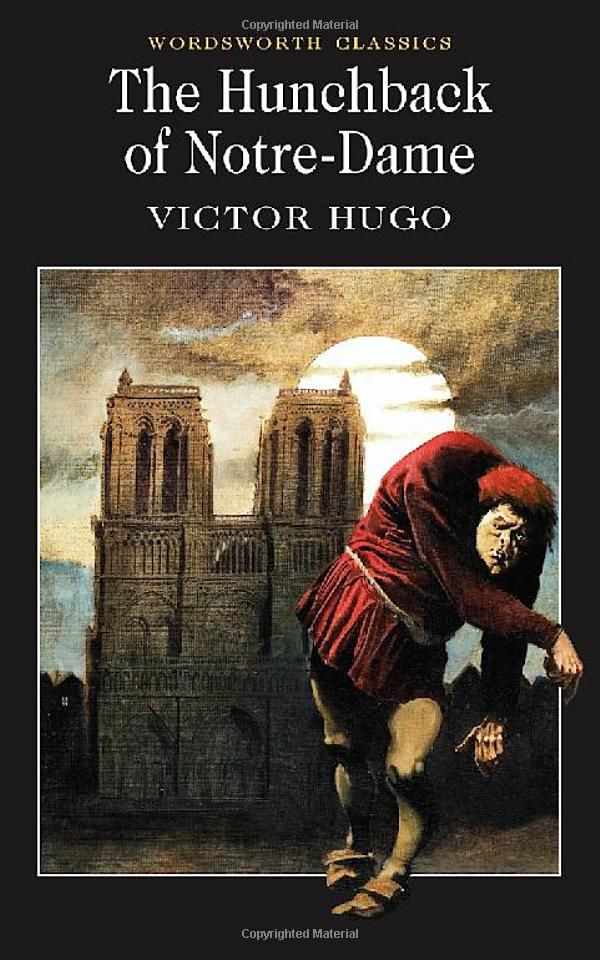
My first Victor Hugo book was Les Misérables – a truly beautiful novel. I didn’t really know much about The Hunchback of Notre-Dame going in, but I thought I might enjoy it in the same sort of way. As it turns out, it’s a very different book and also, it’s a very weird book.
Essentially, it’s about the way in which the lives of several people in Paris in the 15th century tie together. Those people are Quasimodo, a deformed hunchbacked man living in Notre-Dame. Esmeralda, a dancing gypsy girl who performs in the area. Claude Frollo, an outcast alchemist who raised Quasimodo and who has a perverse obsession with Esmeralda. Gringoire, an unsuccessful poet who’s kind of useless and through an unusual sequence of events, crosses paths with Esmeralda quite significantly. Finally, there’s Phoebus – a sleazy, unintelligent, womanising soldier who Esmeralda somehow falls in love with.
There are a lot of characters involved in this story and I’ve only mentioned the most important ones. Though it was sometimes harder to keep up with the less significant characters, I will say that each of those main five left a pretty distinct impression on me. I was perpetually concerned for Esmeralda, amidst the dangerous world of 1500s France. I had endless pity for Quasimodo and the extreme amount of prejudice and persecution he faces for his disabilities and appearance. Gringoire was a kind of comic relief and I had a kind of sympathy for him, being as ridiculous as he was. Phoebus was also a ridiculous sort of comic relief, but he was more of an annoying character in that his unintelligence and lack of empathy have serious consequences for others. Frollo, on the other hand, was downright detestable – a horrible and disgusting villain who made me uncomfortable and angry.
I’ve mentioned that the book has elements of comedy in it and I have to admit that it made me laugh a few times. However, I don’t want to give the impression that this is a light-hearted novel. Though it is occasionally humorous, the overwhelming feeling that I had while reading it was distress and sadness. Loads of really horrible things happen in this book and as I was quite invested in the characters, it was actually hard to keep reading at times. Of all the books I’ve read, this one might just be the most deserving of the ‘Tragedy’ label. At the end, I thought that it was all so cold and meaningless. Suffering without end or release.
Sadly, the biggest flaw of the book was the fact that beside sadness and despair, my most felt emotion while reading it was probably boredom. I don’t think the storyline is boring and overall I enjoyed reading it on the whole, but there’s an element of Hugo’s signature style that does get rather grating the more you encounter it. Without warning, he’ll go off on excessively long tangents covering different subjects or themes included in the novel. For example, one chapter took me over a hour to read and was all about the architectural history of Paris. This isn’t necessarily a subject I’m not interested in, but I don’t think he does a good job of making these things interesting, because he goes into such endless amounts of detail and it’s all irrelevant to the plot. These tangents sometimes go on for several chapters at a time, to the extent that you might even forget what’s going on in the main storyline because of them.
There’s a lot to enjoy in this book. I’m glad I read it. However, it’s not something I’d recommend to everybody. It’s a very heavy read and I’m sure it would leave a lot of people feeling quite depressed. If you enjoy classics and are still interested, I’m sure you’ll love it – but tread with caution!
Rating: 8.2/10
